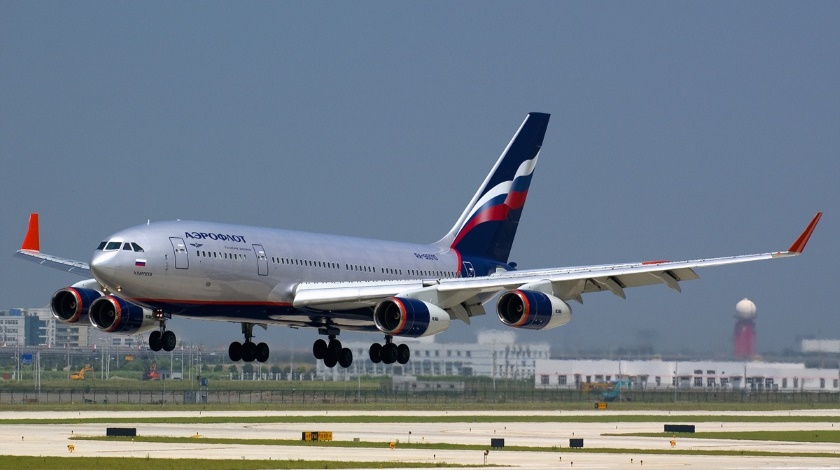Photo: airliners.net
Reading Time: 3 minutesNet losses at Russia’s Aeroflot Group, which is made up of Aeroflot, Rossiya, low-cost carrier Pobeda and Aurora, more than doubled in the first quarter of this year.
The deficit amounted to RUB 11.5 billion (US$195 million) in the period, mainly as a result of a significant fleet expansion programme and increases in pilots’ salaries, reveals the group’s interim financial statements drawn up in accordance with International Financial Reporting Standards (IFRS).
Russia’s largest airline group expects to compensate for this shortfall during the coming busy high season, which this year includes transporting 2018 FIFA World Cup football fans, many of whom are arriving from this week.
This is the first time that Aeroflot Group has separately published its IFRS financial results for the year’s first quarter, explains Shamil Kurmashov, Aeroflot’s outgoing deputy chief executive of commerce and finance. It will help shareholders and investors to “deepen their understanding of the company and its seasonal trends”.
In Q1 2018, Aeroflot Group’s overall revenue increased by 8.5 per cent year-on-year to RUB 111,942 million, driven on by a 6.6 per cent increase in passenger numbers to 11 million.
Revenue from scheduled passenger flights increased by 10.7 per cent year-on-year to RUB 91,107 million. Revenue performance was affected by an increase in yields, primarily on international routes, due to the weakening of the ruble against the euro and the consequent effect of this on foreign exchange-denominated revenue.
Revenue from charter flights increased considerably in the period — by 18.9 per cent year-on-year to RUB 5,789 million – an improvement due, among other factors, to the strategic expansion of Rossiya’s charter programme.
Cargo revenue rose by 11.8 per cent year-on-year to RUB 3,778 million, as cargo and mail volumes grew by 9.6 per cent.
Other revenue streams decreased by 10.2 per cent year-on-year to RUB 11,268 million due mainly to a decrease in the ruble equivalent of dollar-denominated revenues from airline agreements, and because of a decrease in third-party maintenance services provided by the group. In January-March, Aeroflot Group members collectively carried 11 million passengers, up 6.6 per cent year-on-year.
In the period, total operating costs grew 14.3 per cent to 123,538 million rubles, with aircraft operating lease expenses growing the most to RUB 18,499 million, a 24.3 per cent increase year-on-year after the expansion of the fleet (net increase of 51 aircraft), and 21.1 per cent on operating leases compared with 31 March 2017.
Staff costs rose 15.1 per cent year-on-year in the three-month period, amounting to RUB 21,404 million. This increase was driven by rises in aircraft captains’ salaries, effective from the start of 2018, as well as increases in the number of staff needed to support operational growth.
Fuel costs took off in the period, up by 24.1 per cent year-on-year to RUB 34,042 million. This followed a 17 per cent year-on-year increase in the average price of aircraft fuel in rubles with changes in the price of oil, as well as an increase in flight rotations and flying times. Operating costs, excluding aircraft fuel costs, increased by 11 per cent year-on-year to RUB 89,496.
Expenses related to aircraft maintenance and passenger service amounted to RUB 21,908 million, a 3.6 per cent increase year-on-year, affected primarily by the growth in passenger traffic and increased airport costs.
Aircraft maintenance costs grew by 3.5 per cent year-on-year in the quarter, to RUB 8,469 million.Maintenance costs were significantly affected by an increase in the volume of technical maintenance work carried out inside the Group.
Other expenses increased by 16.9 per cent year-on-year to RUB 9,192 million, as a result of an increase in reserves set aside for aircraft maintenance in accordance with accounting policy, as well as bank fees and expenses on global distribution systems amid the increase in passenger traffic.
As a result of the impact of all of these factors, the Group’s quarterly EBITDA totalled RUB 10,767 million.

